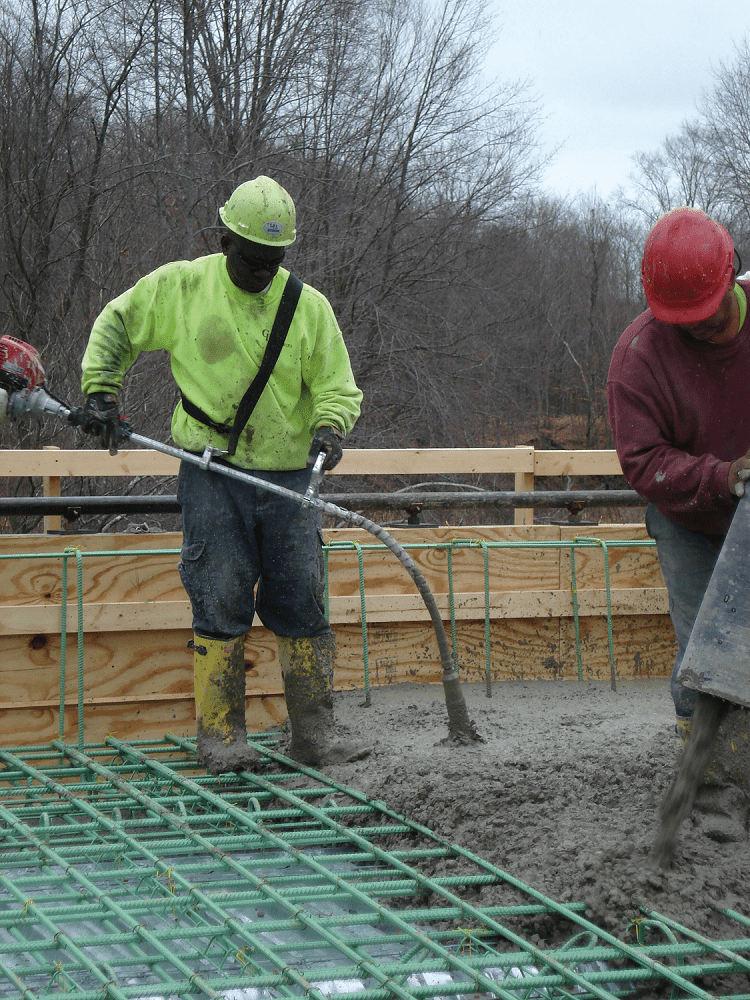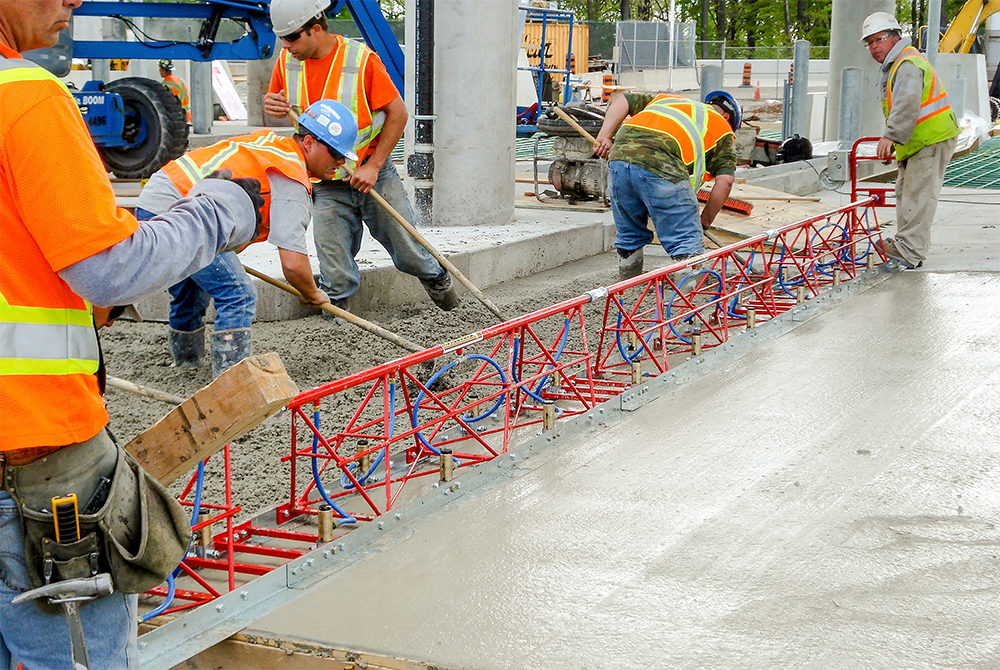Understanding Foundation Needs with West Coast General Engineering concrete foundation: A Complete Guide
Understanding Foundation Needs with West Coast General Engineering concrete foundation: A Complete Guide
Blog Article
The Important Function of Concrete Foundation in Structural Honesty and Durability
When it concerns building a home, the foundation is a lot more crucial than you might believe. Concrete foundations give unmatched toughness and sturdiness, ensuring your structure can stand up to different ecological difficulties. Without a solid base, you take the chance of prospective problems like changing or breaking, which can compromise safety and worth. Understanding the subtleties of concrete foundations can be the trick to protecting your investment for years ahead. So, what should you take into consideration following?
Recognizing the Value of Concrete Foundations
Concrete foundations are vital to the total stability of any framework, as they offer the important assistance needed to withstand numerous tons and ecological conditions. When you consider building a home or a business area, the foundation is the first point you should take into consideration. It serves as an obstacle against dampness, safeguarding your residential property from water damage. A well-placed concrete structure also stops settling and shifting, which can cause cracks in walls and floorings. You'll want to assure that the foundation is appropriately designed and strengthened, as this influences the durability of your structure. Additionally, a solid structure can boost energy effectiveness by reducing air leaks. Keep in mind, disregarding the significance of a concrete structure can bring about costly repair services down the line. Spending in a top quality foundation upfront is vital for the stability and durability of your structure.
Benefits of Concrete Foundations for Structural Stability
While several variables contribute to a building's structural stability, concrete foundations use unequaled longevity and strength. You'll appreciate that concrete can stand up to severe climate condition, resisting both moisture and temperature changes. This durability indicates your framework is less likely to experience breaking or shifting in time, which can jeopardize its safety.Additionally, concrete's intrinsic weight gives a strong base, protecting against activity throughout all-natural occasions like quakes or floods. When you choose a concrete foundation, you're also going with reduced upkeep; unlike wood, it won't rot or attract parasites, conserving you money and time in repairs.Moreover, concrete's fire resistance provides added safety and security, guaranteeing your structure can endure high temperatures without substantial damages. Generally, investing in a concrete foundation suggests you're focusing on the long-lasting stability and honesty of your structure, making it a wise choice for any kind of building project.
Usual Sorts Of Concrete Foundations
When it pertains to building structures, recognizing the common kinds of concrete structures can help you make educated options for your project. One of the most prevalent kinds consist of slab-on-grade, crawl area, and full cellar foundations.A slab-on-grade foundation is a simple, cost-efficient choice, where a thick concrete slab is put directly on the ground. This kind works well in cozy climates, as it decreases warm loss.Crawl space structures elevate the home a little above ground, allowing for air flow and access to pipes and electrical systems. This layout can help stop wetness issues.Full cellar foundations supply additional living or storage area while offering excellent architectural support. They need more excavation and are typically made use of in cooler climates to stop frost heave.
Variables to Think About When Creating a Concrete Foundation

Ideal Practices for Setting Up Concrete Foundations
When you're mounting a concrete foundation, correct site preparation is vital to ensure security (West Coast General Engineering industrial concrete). You'll additionally need to comprehend support strategies to improve stamina and resilience. Do not overlook the curing process, as it plays an essential function in attaining a strong foundation.
Site Preparation Relevance
It may seem straightforward, proper website prep work is crucial for ensuring a strong and sturdy concrete structure. Begin by clearing the location of any particles, plant life, or organic material that can jeopardize the foundation's honesty. Next, analyze the soil type and compaction; you could require to excavate or include materials to develop a steady base. Degree the ground to ensure even weight circulation and avoid settling concerns later. Setting up proper water drainage systems is likewise important to protect against water accumulation, which can damage the foundation gradually. Mark out the structure's dimensions properly to direct the pouring procedure. By following these actions, you'll set the phase for an effective concrete foundation that stands the examination of time.
Reinforcement Methods Explained
When the site is effectively prepared, the next action in ensuring a durable concrete foundation involves implementing effective reinforcement strategies. You ought to begin by using steel rebar, which offers tensile stamina and aids protect against breaking. Lay the rebar in a grid pattern, making certain it rises using spacers to preserve correct protection. Furthermore, take into consideration using wire mesh for additional support, particularly in areas based on hefty lots. Do not neglect to link the rebar junctions firmly with cord. For bigger structures, fiber support can enhance toughness, reducing the risk of shrinkage splits. Constantly follow local building codes and guidelines to guarantee compliance. By applying these reinforcement techniques, you'll substantially boost your foundation's strength and longevity, laying a solid groundwork for your structure.
Curing Refine Basics
To assure your concrete foundation treatments properly, it is necessary to maintain sufficient moisture and temperature conditions instantly after pouring. Start by covering the surface area with a damp cloth or plastic bed linen to preserve dampness. This maintains the concrete hydrated, avoiding cracks and guaranteeing strength. You must likewise monitor the temperature level; suitable treating conditions are between 50 ° F and 90 ° F. If it's too warm, haze the surface frequently to stop fast evaporation. For cool weather condition, think about utilizing insulating blankets to maintain heat. Go for a treating duration of at the very least 7 days, as this is important for optimum stamina development. By following these best techniques, you'll enhance your structure's sturdiness and longevity, making sure structural integrity for several years to find.
Maintenance of Concrete Structures for Durability
To maintain your concrete over here foundation solid and enduring, regular inspections are important. You must also ensure reliable drainage solutions remain in place to stop water damage. If you identify any kind of fractures, resolving them promptly will conserve you from larger problems down the line.

Routine Assessments and Analyses
While routine assessments and analyses may look like a duty, they're necessary for preserving the stability of your concrete structure. By routinely looking for splits, changes, or indications of wear, you can catch potential issues prior to they rise right into costly repairs. Look for any kind of water merging around the foundation or unusual settling, as these can signify underlying troubles. It's likewise smart to monitor any kind of modifications in your home's structure, like doors that stick or home windows that don't open smoothly. Maintaining a record of your inspections aids track adjustments with time, permitting aggressive maintenance. Inevitably, these assessments ensure your structure remains steady, sustaining the longevity and safety of your whole structure. Don't ignore this critical element of homeownership!
Effective Drain Solutions
Regular examinations can expose concerns like drain troubles that may endanger your concrete foundation's security. To stop water buildup, ensure your gutters and downspouts straight water far from the structure. Installing French drains pipes can effectively reroute surface and groundwater, minimizing stress on your structure walls. Additionally, grading the dirt around your home aids assure that water moves away, rather than pooling near your foundation.Consider utilizing sump pumps in areas susceptible to flooding, as they proactively get rid of excess water. Routinely inspect for blockages in drain systems and clear them immediately. You'll shield your structure's honesty and long life by taking these aggressive actions. Remember, effective water drainage remedies are important for preserving a solid, durable concrete foundation.
Trigger Fracture Services
When you notice cracks in your concrete foundation, addressing them immediately is crucial for maintaining its durability. Little fractures can promptly advance into larger issues, compromising the structural stability of your home. On a regular basis evaluate your structure for indicators of damage, More hints such as horizontal or upright fractures. If you find any, do not wait-- fix them promptly. You can utilize epoxy injections or concrete patching compounds, which are effective for sealing cracks. Constantly adhere to the producer's instructions and consider speaking with a professional for substantial damages. Remember, prompt repairs not just enhance your foundation's resilience but also conserve you cash in the lengthy run by preventing extra comprehensive fixings down the line. Keep positive, and your foundation will continue to be solid and protected.
Addressing Usual Concerns With Concrete Foundations
Concrete foundations can encounter different issues over time, making it essential to recognize and address them promptly. Among the most typical problems is splitting, which can take place due to temperature level fluctuations or working out dirt. If you notice fractures, it's necessary to evaluate their dimension and deepness; small cracks can commonly be secured, while larger ones may need specialist evaluation.Water breach is one more significant worry. Excess moisture can cause mold development and structural experience concrete design damage. Guarantee correct drainage around your structure to mitigate this danger. Furthermore, seek signs of moving or bowing walls, as this can indicate underlying concerns with your structure's stability.Regular examinations are fundamental to catch these troubles early. If you spot any worrying signs, don't think twice to speak with a foundation specialist. By staying aggressive, you can keep the integrity and durability of your concrete foundation, assuring your home remains risk-free and protected.
Often Asked Inquiries
How Does Dirt Type Impact Concrete Structure Performance?
Dirt type considerably impacts concrete foundation efficiency. If you've got extensive clay, for example, it can cause shifting and splitting. Sandy dirt could bring about working out. Comprehending your dirt assists assure a secure structure.
Can Concrete Foundations Be Fixed if Harmed?
Yes, you can fix broken concrete structures. Relying on the extent of the damage, techniques like epoxy injection or slab jacking can restore stability. It's best to speak with an expert for efficient services.
What Is the Typical Life-span of a Concrete Foundation?
A concrete foundation generally lasts 30 to 100 years, depending upon elements like soil conditions, environment, and upkeep. You'll wish to maintain an eye on it to ensure it stays in great shape throughout its lifespan.
Are There Alternative Materials to Concrete for Foundations?
Yes, there are alternatives to concrete for foundations, like steel, hardwood, or perhaps recycled products. Each choice has distinct benefits and drawbacks, so you need to consider your task's certain requirements when selecting the right product.
Just How Does Climate Effect Concrete Foundation Sturdiness?
Climate significantly impacts concrete structure toughness (West Coast General Engineering commercial concrete). Severe temperature levels, wetness, and freeze-thaw cycles can weaken the product, resulting in splits and architectural issues. You need to take into consideration local climate conditions when preparing your foundation to assure long-lasting efficiency
Report this page